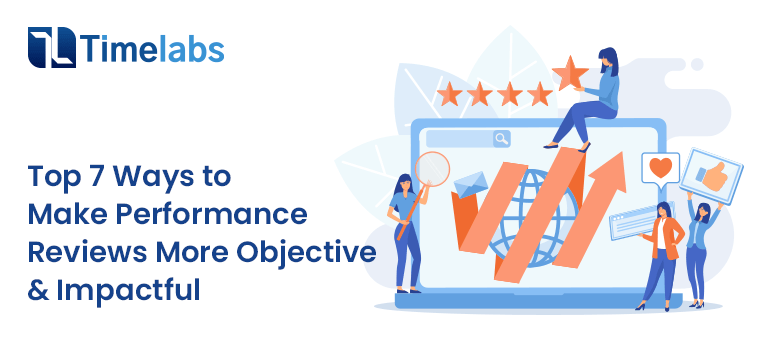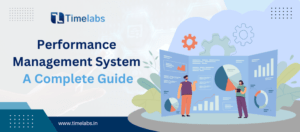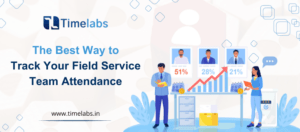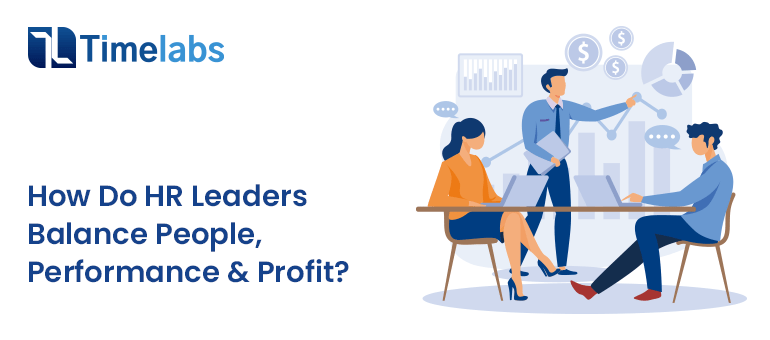Performance reviews are a cornerstone of employee development and organizational growth. However, they often face criticism for being subjective, demotivating, or disconnected from daily work. To address these challenges, businesses must adopt strategies that enhance objectivity and make reviews more meaningful. Timelabs, a trusted name in HR Software, offers innovative tools like Performance Management Software, Recruitment Management Software, and Employee Self Service Portal to streamline and elevate the review process. This article outlines seven practical ways to make performance reviews fairer, data-driven, and impactful, with a focus on leveraging Timelabs’ solutions.
1. Set Clear, Measurable Goals from the Start
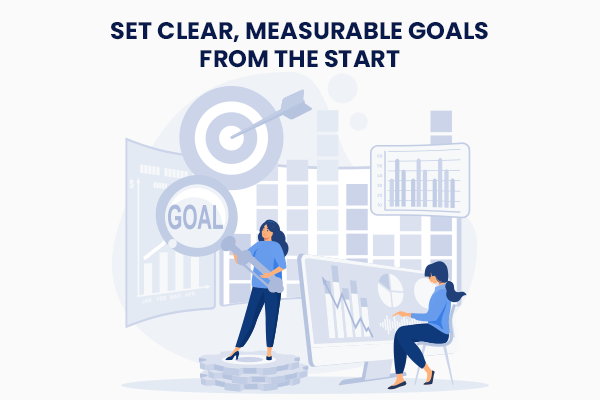
The foundation of an objective performance review lies in well-defined goals. Vague expectations lead to subjective evaluations, as managers and employees may interpret success differently. To avoid this, establish SMART (Specific, Measurable, Achievable, Relevant, Time-bound) goals at the beginning of the review cycle.
How to Implement:
- Align goals with organizational objectives: Ensure individual goals contribute to team and company priorities.
- Use Timelabs’ Performance Management Software: This tool allows HR teams to set, track, and update goals in real-time, ensuring clarity and alignment.
- Document goals collaboratively: Involve employees in goal-setting to foster ownership and reduce misunderstandings.
Timelabs’ Performance Management Software provides a centralized platform where managers can define KPIs and monitor progress, ensuring evaluations are based on measurable outcomes rather than personal biases.
2. Leverage Data-Driven Insights
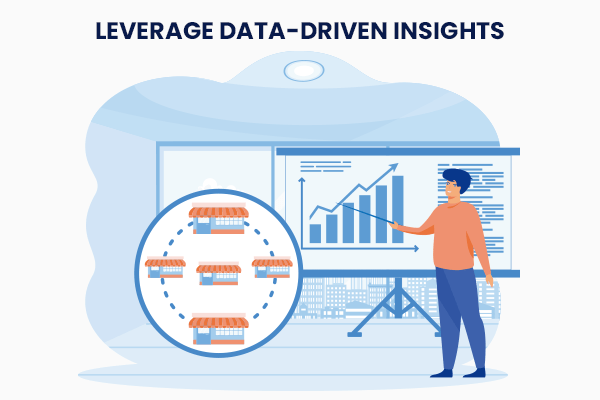
Subjectivity creeps into reviews when decisions rely on memory or gut feelings. Data-driven evaluations, on the other hand, provide concrete evidence of performance, making reviews fairer and more credible.
Steps to Achieve This:
- Track performance metrics: Use tools to monitor attendance, project completion rates, and other KPIs.
- Integrate Timelabs’ HR Software: This solution collects and analyzes employee data, offering insights into productivity, punctuality, and goal achievement.
- Incorporate 360-degree feedback: Gather input from peers, subordinates, and clients to create a holistic view of performance.
With Timelabs’ HR Software, managers can access detailed reports and analytics, ensuring reviews are grounded in facts rather than opinions. This approach not only enhances objectivity but also builds trust in the process.
3. Standardize Evaluation Criteria
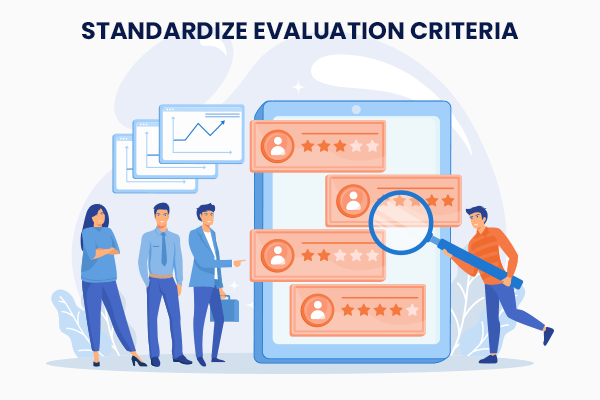
Inconsistent evaluation standards across teams or managers can lead to unfair reviews. Standardizing criteria ensures every employee is assessed on the same parameters, regardless of their role or department.
Practical Tips:
- Create role-specific rubrics: Develop clear scoring systems for skills, competencies, and deliverables.
- Train managers: Equip them with tools and guidelines to apply criteria consistently.
- Use Timelabs’ Performance Management Software: Its customizable templates allow HR to design uniform evaluation frameworks tailored to each role.
By standardizing criteria with Timelabs’ Performance Management Software, organizations can eliminate discrepancies and ensure equitable assessments, boosting employee morale and fairness.
4. Encourage Continuous Feedback
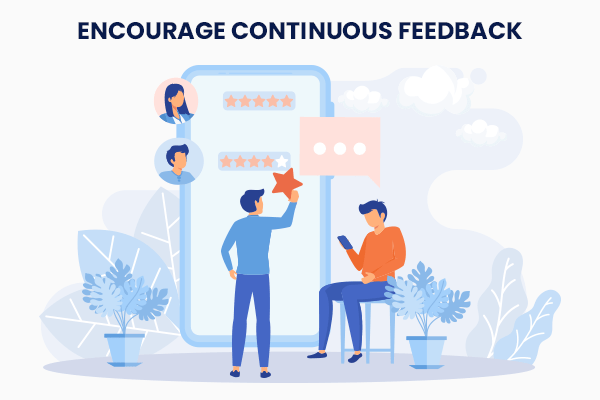
Annual or biannual reviews often fail to capture the full scope of an employee’s performance. Continuous feedback, delivered throughout the year, keeps employees informed about their progress and areas for improvement, making year-end reviews less surprising and more constructive.
How to Foster Continuous Feedback:
- Promote open communication: Encourage managers to provide regular, constructive feedback.
- Leverage Timelabs’ Employee Self Service Portal: This platform enables employees to request feedback, log accomplishments, and engage in ongoing dialogues with managers.
- Schedule check-ins: Use Timelabs’ tools to set reminders for monthly or quarterly one-on-ones.
Timelabs’ Employee Self Service Portal empowers employees to take an active role in their development, while managers can provide timely insights, ensuring reviews reflect a year’s worth of progress rather than a single moment.
5. Empower Employees with Self-Assessments
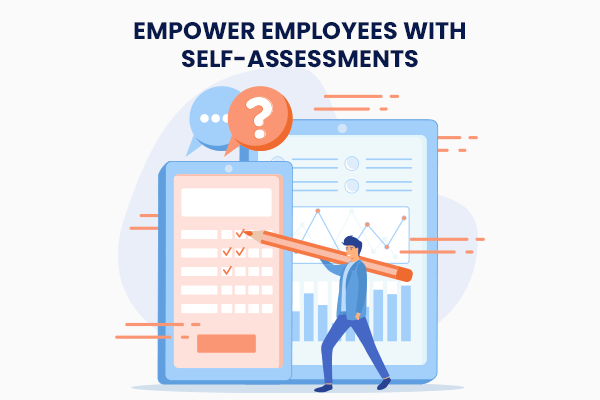
Involving employees in the review process increases transparency and accountability. Self-assessments allow employees to reflect on their achievements, challenges, and growth areas, providing valuable context for managers.
Steps to Implement Self-Assessments:
- Provide structured templates: Ask employees to rate their performance against predefined goals and competencies.
- Use Timelabs’ Employee Self Service Portal: Employees can submit self-assessments directly through the portal, streamlining the process.
- Compare self and manager evaluations: Discuss discrepancies to align expectations and foster mutual understanding.
Timelabs’ Employee Self Service Portal simplifies self-assessments by offering user-friendly interfaces where employees can document their contributions and reflect on their performance, making reviews more collaborative and objective.
6. Train Managers to Minimize Bias
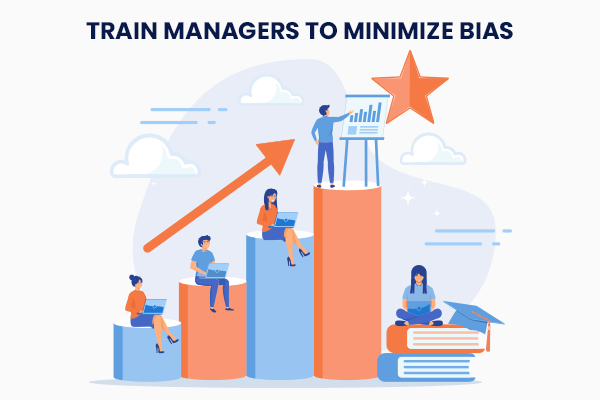
Unconscious biases, such as recency bias (focusing on recent events) or halo effect (overrating based on one strength), can skew performance reviews. Training managers to recognize and mitigate these biases is critical for objective evaluations.
Training Strategies:
- Conduct bias awareness workshops: Educate managers on common biases and their impact.
- Use Timelabs’ HR Software for guided evaluations: The software prompts managers to evaluate specific metrics, reducing reliance on subjective impressions.
- Encourage evidence-based feedback: Require managers to support ratings with examples or data.
Timelabs’ HR Software supports managers by providing structured evaluation workflows and data-backed insights, helping them deliver fairer, bias-free reviews that inspire employee growth.
7. Link Reviews to Career Development
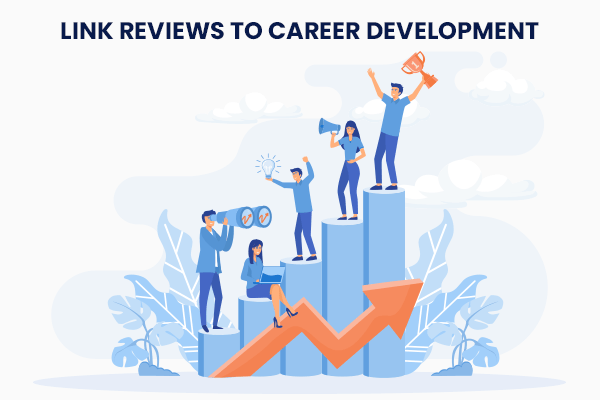
Performance reviews lose impact when employees see them as a formality rather than a tool for growth. Connecting reviews to career development opportunities motivates employees and reinforces the value of the process.
How to Make Reviews Development-Focused:
- Discuss career aspirations: Use reviews to explore employees’ long-term goals and how they align with organizational opportunities.
- Create individualized development plans: Recommend training, mentorship, or new projects based on review outcomes.
- Integrate with Timelabs’ Recruitment Management Software: Identify internal candidates for promotions or lateral moves based on performance data.
Timelabs’ Recruitment Management Software complements performance reviews by tracking employee skills and potential, enabling HR to match high performers with growth opportunities. This approach ensures reviews are not just evaluative but also forward-looking, driving employee engagement and retention.
Conclusion
Performance reviews don’t have to be a dreaded exercise. By adopting these seven strategies setting clear goals, using data, standardizing criteria, fostering continuous feedback, encouraging self-assessments, training managers, and linking reviews to development, organizations can transform reviews into a powerful tool for growth. Timelabs’ HR Software, Performance Management Software, Employee Self Service Portal, and Recruitment Management Software provide the technology to make this transformation seamless and effective. With Timelabs, businesses can create a culture of fairness, accountability, and continuous improvement, driving both employee satisfaction and organizational success.
Ready to make your performance reviews more objective and impactful? Contact Timelabs today to see how our HR Software solutions can elevate your HR processes. Visit Timelabs for more information.
